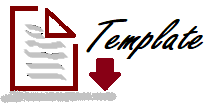CHANGING PARADIGM OF GEOGRAPHY LEARNING FROM INDIVIDUAL BASED TO TEAM BASED GEOGRAPHIC LEARNING PARADIGM
(1) Pendidikan geografi, Universitas Negeri Gorontalo
(*) Corresponding Author
DOI: https://doi.org/10.26858/ugj.v4i2.36003
Abstract
Keywords
Full Text:
PDFReferences
Arijanto, Agus. 2012. Strategi bertindak dalam menghadapi perubahan. Modul ke_7 mata kuliah manajemen perubahan. Pusat bahan ajar dan elearning. Online http://www.mercubuana.ac.id
Bruffe, Kenneth A. 1984. Collaborative Learning and the "Conversation of Mankind". National Council of Teachers of English. College English, Vol. 46, No. 7. pp. 635-652. Online http://www.jstor.org/stable/376924 (diakses 02 April.2021)
Cerbin, Bill. 2010. Collaborative Learning Techniques Workshop Handouts April 23, 2010. UW-La Crosse.online https://www.uwlax.edu/catl/studentlearning/presentations/collaborativelearningtechniqueshandout.pdf (diakses 03 Februari 2021).
Djamarah, Syaiful B. 2005. Guru dan Anak Didik dalam Interaksi Edukatif (suatu pendekatan teoritis psikologis). Jakarta; Rineka Cipta.
Hamalik, Oemar. 2008. Proses Belajar Mengajar. Jakarta; Bumi Aksara.
Hosnan, M. 2014. Pendekatan Saintifik dan Kontekstual dalam pembelajaran abad 21. Bogor: Ghalia Indonesia.
Ingleton, christine et,all. 2010. Commonwealth Of Australia. University of Adelaide ACUE. Australia. Online https://www.imt.liu.se/edu/Bologna/SCL/CollaborativeLearning.pdf (diakses 03 April 2021).
Frame, tracy R. et. all. 2015. Student Perceptions of Team-based Learning vs. Traditional Lecture-based Learning. American Journal of paramaceutical education. no 4. Hal 51-79. online (https://www.ncbi.nlm.nih.gov/pmc/articles/PMC4469017/) diakses 26 Januari 2021.
Mbulu, Joseph, Pengajaran Individual: Pendekatan, Metode, Dan Media, Pedoman Mengajar Bagi Guru Dan Calon Guru. (http://dewin221106.blogspot.com/2010/05/contoh-contoh-pendekatan- pembelajaran.html), diakses pada tanggal 10 Januari 2021.
Mukminan, 2014. Kurikulum 2013, Posisi mata pelajaran geografi, dan
Inovasi pembelajaran geografi tingkat Smp dan sma dalam kurikulum 2013. Makalah disajikan dan dibahas pada Kegiatan ARDGISS IN MOTION (AIM) dengan tema "Geo Education: Pelatihan Ilmu dan Instrument Geografi Untuk Peningkatan Sistem Pembelajaran di UGM, Yogyakarta.
Nursa’ban, Muhammad. 2007. Implementasi Student Centered Learning berbasis Internet dalam Pembelajaran Geografi Program Pendidikan Non Formal Kejar Paket C. Diklus edisi 6. Tahun XI. Geografi FIS UNY. Yogyakarta.
Nasution, 2011. Berbagai Pendekatan Dalam Proses Belajar Mengajar dengan Pendekatan Pembelajaran Personal. (http://cummank.blogspot.com/2011/03/01/ pendekatan-pembelajaran-personal.html), diakses pada tanggal 11 Januari 2021.
Papperdine University. 2017. Individual Learning. Mindmaps Charting new identities.online (https://mindmaps.wikispaces.com/Individual+Learning) diakses 26 Januari 2021.
Reed, A Zachary. 2014. Collaborative Learning in the Classroom. This paper was completed and submitted in partial fulfillment of the Master Teacher Program. Faculty professional development program conducted by the Center for Faculty Excellence, United States Military Academy, West Point, NY.
Soendari, Tjutju. 2012. Program Pembelajaran Individual. Materi perkuliahan jurusan pendidikan luar biasa FIP UPI. Bandung.
Sumarli, Eka, E. 2015. Model Pembelajaran Kolaboratif dengan Tutor Sebaya. JRKPF Universitas Ahmad Dahlan Yogyakarta. Vol. 1 No. 2.
Sutikno, Sobry, 2004. Menuju Pendidikan Bermutu. Padang: NTP Press.
Tweddel, Simon. 2013. Student Study Guide. Team-Based Learning. Online (https://www.reading.ac.uk/web/files/cqsd/Team_Based_Learning-_Introductory_Student_Study_Guide.pdf) diakses 26 Januari 2021.
Toth, peter. 2014. The Role of Individual Differences in Learning. Jurnal Trefort Ágoston Center for Endineering Education, Óbuda University. Népszínház u. 8, H-1081 Budapest, Hungary. Vol. 11, No. 4.
Upton, Penney. 2012. Psychology Express:developmental Psychology. Jakarta: Erlangga.
Utomo, Tri. 2011. Penerapan pembelajaran kolaboratif dengan assesment teman sejawat. JP3 Stikip Pgri Lumajang VoL 1 No. 1.
University of sydney. 2017. Collaborative learning. Sydney School of Education and Social Work online. University of sydney. Australia. Online http://sydney.edu.au/education_social_work/learning_ teaching/ict/theory/collaborative_learning.shtml (diakses 2 Januari 2021).
Mulyana. R. 2004. Mengartikulasikan Pendidikan Nilai. Bandung: Alfabeta.
Mulyasa. 2014. Konsep, Karakteristik dan Implementasi Nilai. Bandung: PT Remaja Rosda Karya.
Article Metrics
Abstract view : 117 times | PDF view : 0 timesRefbacks
- There are currently no refbacks.
Copyright (c) 2022 Hendra Hendra

This work is licensed under a Creative Commons Attribution-NonCommercial 4.0 International License.
UNM Geographic Journal is Indexed in
Editorial Office of UNM Geographic Journal:





















